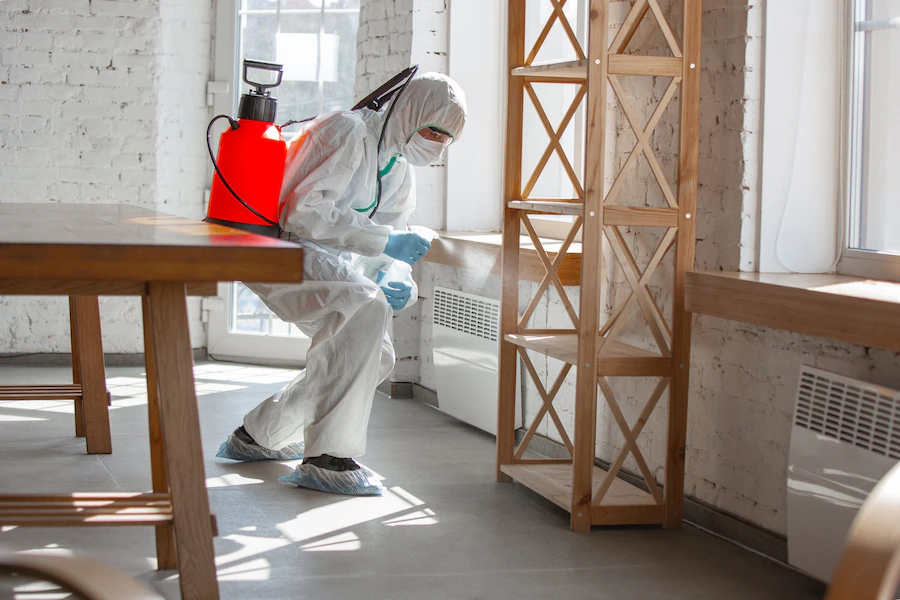The Hidden Costs Of Pest Infestations For Property Managers
by Ankita Tripathy Real Estate 23 September 2023

In the realm of property management, certain challenges, such as market fluctuations or tenant disputes, are often anticipated and addressed head-on. However, there are hidden threats that can silently erode the value of a property, jeopardizing both financial gains and reputational standing. Among these concealed adversaries, pest infestations top the list. While a roach or a mouse might seem inconsequential in isolation, when these critters multiply, they bring with them a slew of unexpected costs and challenges for property managers. This article delves deep into the often-underestimated ramifications of pest control and underscores the imperative of proactive management for safeguarding properties.
Navigating The Unseen Challenges:
The Tangible Toll On Infrastructure
Pests, from termites to rodents, are more than mere nuisances; they directly affect a property’s structural integrity. Termite colonies, for instance, can silently consume wooden structures, jeopardizing the property’s stability. Similarly, rodents such as rats and mice often gnaw on electrical wirings, leading to potential fire hazards. This type of damage isn’t just unsightly; it can lead to significant repair costs and potential legal liabilities if not addressed promptly.
Impact On Property Value

Pest infestations can devalue a property considerably. Prospective tenants or buyers, upon learning of an infestation, often reconsider their decisions or negotiate for a lower price. For property managers, the depreciation in property value translates to lost revenue, making effective pest management essential for maintaining an asset’s market worth.
Health Concerns And Implications
The health risks associated with pests are paramount. Cockroaches, for example, can spread a range of diseases and exacerbate asthma symptoms, especially in children. Similarly, mosquitoes transmit diseases like Zika and dengue. These health concerns don’t just jeopardize tenants’ well-being but can also escalate into legal claims against property managers for not maintaining a safe living environment.
The Intangible Costs: Reputation At Stake
In the era of online reviews and instant communication, a single report of pest infestation can taint a property’s reputation overnight. A negative reputation not only deters potential tenants but also poses challenges in commanding a premium rent or selling price. Recovering from such a blow can be time-consuming and often more expensive than proactive pest control measures.
Increased Turnover Rates
Tenants prioritize living in a safe, clean environment. A pest-ridden property can lead to an increased turnover rate, with tenants choosing to relocate rather than deal with the inconvenience and potential health risks. Frequent tenant changes also mean more vacancies, marketing expenses, and administrative work for property managers.
The Expense Of Reactive Measures
Reacting to a pest infestation after it has become a full-blown problem is invariably more expensive than preventive measures. Eliminating a widespread infestation may require multiple treatments, relocation of tenants, and extensive repairs. Moreover, these reactive treatments are merely temporary solutions. Without a comprehensive plan in place, properties remain vulnerable to recurring infestations.
Prolonged Maintenance Demands
Pest infestations often necessitate frequent maintenance, from patching up rodent holes to fixing damage caused by nesting birds. These additional maintenance tasks, when accumulated over time, can significantly inflate operational costs. Furthermore, the need for specialized tools or materials to address pest-induced damages can strain a property’s maintenance budget. This doesn’t only represent an immediate outlay but also diverts resources away from other essential upkeep activities, potentially leading to further expenses down the line.
The Unseen Mental And Emotional Toll
While the physical damages of pests are evident, what’s less visible is the psychological impact on tenants. Living with pests can induce stress, anxiety, and sleep disturbances, impacting the overall well-being and satisfaction of occupants. For property managers, this can manifest as increased complaints, disputes, or even legal actions. There’s also a ripple effect to consider; word-of-mouth from distressed tenants can deter potential future occupants, compounding the already escalating costs associated with pest presence.
Prevention: The Best Strategy
Given the multifaceted costs of pest infestations, it’s evident that prevention is both the most cost-effective and efficient strategy for property managers. Regular inspections, tenant education, and working with professional pest control services are key components of a robust preventive plan. Property managers should view pest control not as an optional expense but as an essential investment that protects both their tangible assets and intangible reputation.
In Conclusion
The hidden costs of pest infestations are vast, affecting property managers financially, legally, and reputationally. While pests are an inevitable challenge in property management, they are not insurmountable. Recognizing the true costs of infestations and investing in proactive measures not only safeguards the property and its occupants but also ensures sustained profitability and reputation in a competitive market.
The onus is clear: property managers must prioritize pest control not as a mere operational task but as a core component of their asset management strategy. By doing so, they can effectively mitigate risks, safeguard their investments, and ensure a prosperous future in the real estate industry.
Read Also:







































































































